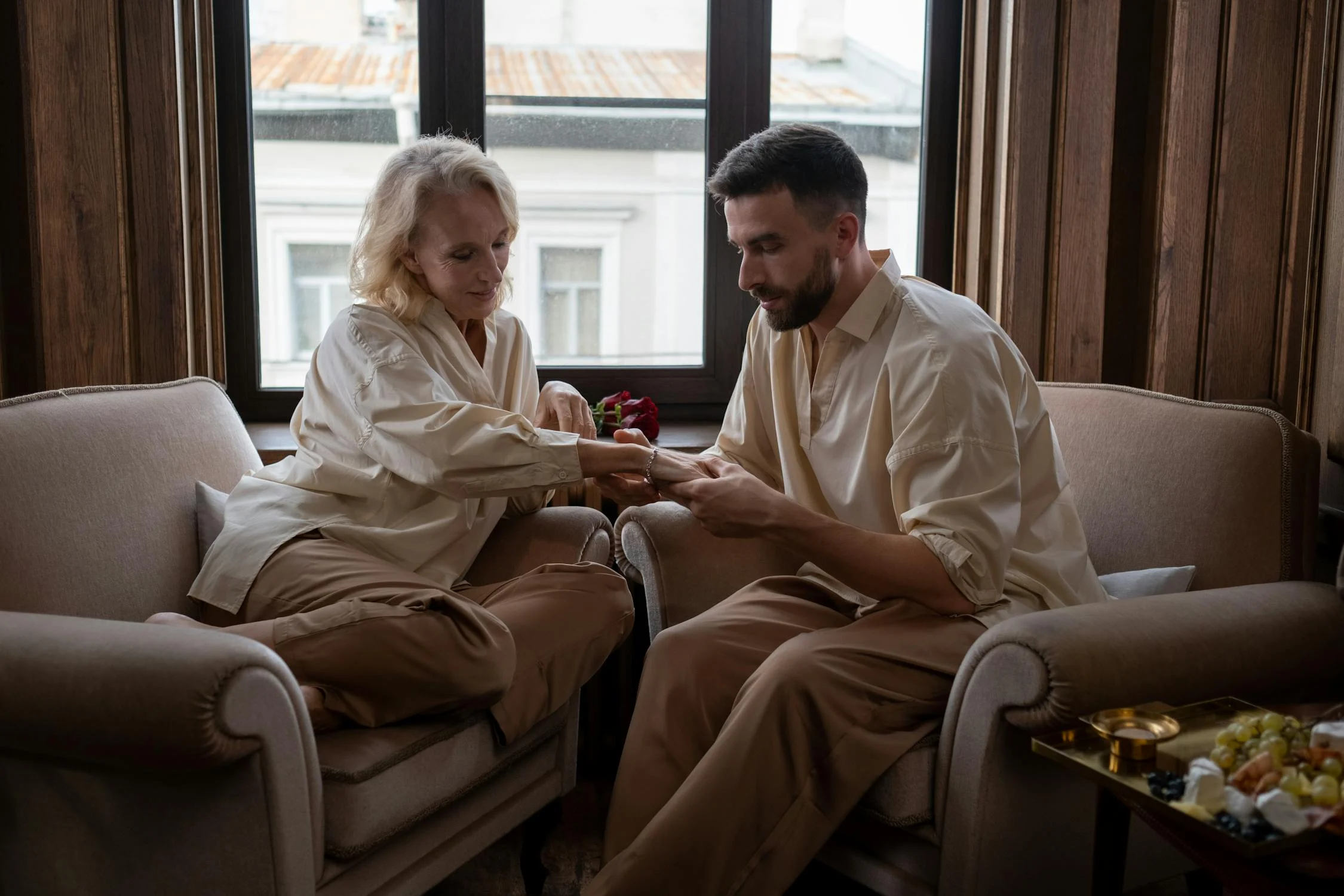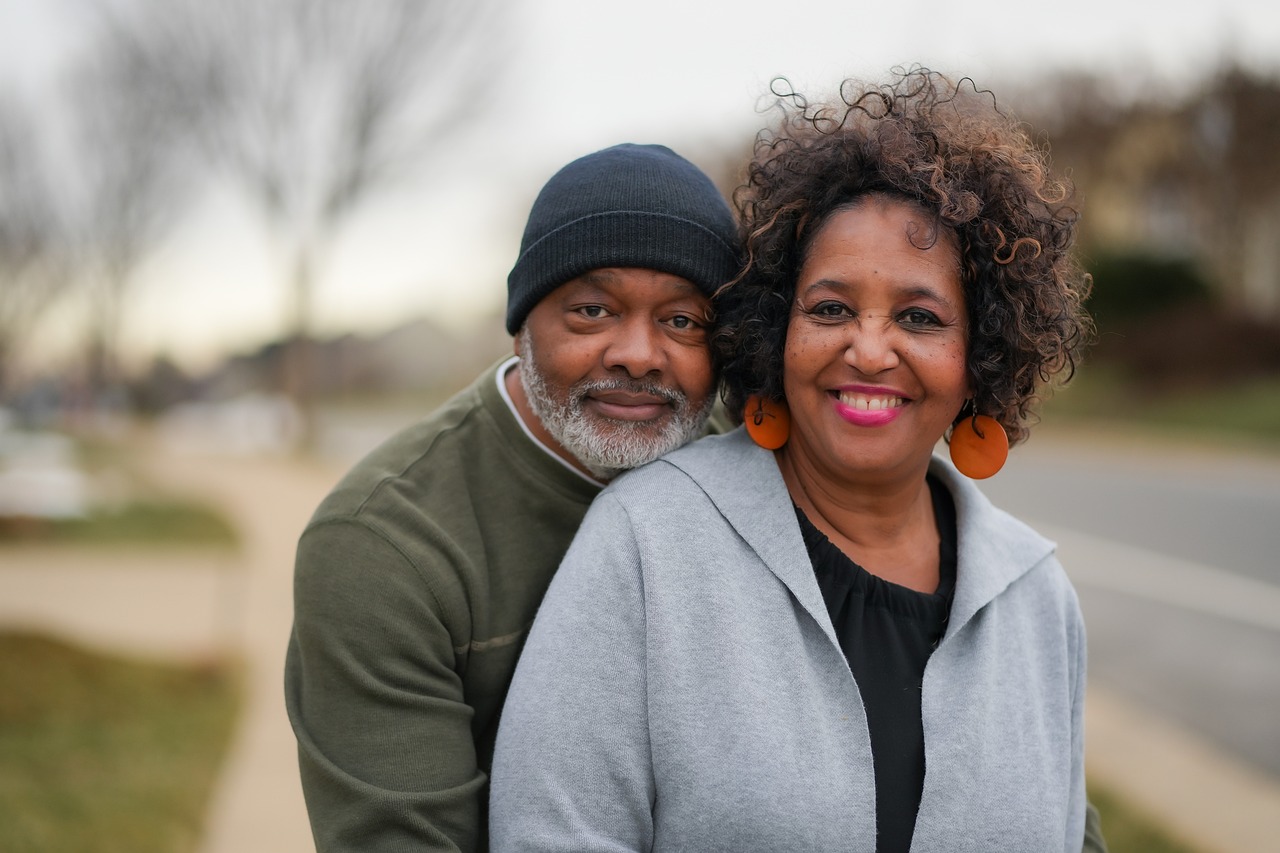
The Beauty and Challenges of Age-Gap Love
Date
Friday, Dec 13, 2024Minutes to read
11 minDate
Friday, Dec 13, 2024Minutes to read
11 minIt's funny how, when we fall in love, we sometimes do things that may challenge societal norms. Romantic couples with large age gaps are often frowned upon be it either friends, family, or colleagues. They frequently stir discussions about compatibility, maturity, and love’s true essence. However, for some love transcends age and mainstream beliefs. All things considered, an age gap in love isn't all that bad. Studies have shown that women with older partners were more satisfied and committed to their relationships than women with younger or same-aged partners.
Nevertheless, age-gap relationships are anything but unheard of. Age differences between couples are more common than rare across various cultures across the globe. In some non-western countries, this ratio might be comparatively higher. For example, in India, the average age gap between partners can vary from 4 to 11 years, whereas, in the US, the average age gap is 2.2 years.
So, does age matter? Is age literally just a number? Do couples with an age gap experience better or poorer relational satisfaction than their same-age counterparts? This article will delve into the intricate dynamics of age-gap relationships, uncovering their unique beauty while addressing the challenges they pose and offering a balanced and insightful perspective.
Why does age become just a number for certain people?

According to an article published by Deakin University, 8% of all married heterosexual couples in Western countries have a large age gap, with the dynamic of older men with younger women being more prevalent. Only about 1% of the total involve younger men with older women. The data is relevant to countries like India as well, where husbands tend to be older than their wives.
There could be several possible reasons why age is irrelevant to some couples:
Emotional compatibility
Many couples find that emotional maturity matters more than physical age. A younger partner might demonstrate wisdom beyond their years, or an older partner might have a youthful outlook.
Chemistry and attraction
Attraction is deeply personal and can go beyond physical traits. Emotional and intellectual connections often outweigh superficial differences, including age, and spark great chemistry between people.
Shared values and interests
Strong relationships are often built on shared goals, hobbies, and values, which can transcend generational divides. When two people align on what truly matters to them, age becomes secondary.
Life experiences and perspectives
Some people are drawn to partners who offer a different life perspective or experience. For instance, older partners may bring stability and wisdom, while younger partners can add energy and spontaneity.
Status and resources
Women put more emphasis on the status and resources of their partners as they are child-bearers and investment on their behalf could be hefty. So they look for partners who can invest in their relationships as well as their families. Similarly, men look for healthy younger women who can bear their children and continue their bloodline. However, this is a primitive approach that has evolved over time shaping modern age-gap relationships.
While age-gap relationships can face challenges such as societal judgment or differing life stages, many couples successfully navigate these hurdles by focusing on communication, mutual respect, and connection.
What are the challenges differently-aged couples have to encounter?
As stated earlier, things are not always easy for couples with a significant age gap with the burden of societal judgments, negative reactions from peers, and potential power imbalances weighing down on their shoulders. Below are some common challenges that age-gap relationships may encounter:
Societal stigma and judgment
Age-gap couples often face societal disapproval. In places, where the average age difference between partners is less, couples with a wide age gap may face a lot of judgment and criticism from people around them. Negative reactions from friends and family further create added pressure on the relationship.
Different life stages
In an age-gap relationship, couples may be at different stages in life with different priorities up their way such as one focusing on career growth while the other plans retirement and settling down. A difference in timelines for major life goals like having children can become a reason for conflict.
Power dynamics
There may be unbalanced power dynamics with the older partner unintentionally taking on a dominant role due to greater life experience. Younger partners may feel overly dependent on their older counterparts, such as financial dependency. Giving room for practicing control and authority.
Long-term emotional and practical issues
Age-gap couples may face fears about aging such as one partner outliving the other. A significant age gap can also create a caretaker identity on one partner which may sooner or later cause hindrances in their personal and professional lives.
Despite these challenges, many age-gap couples navigate their differences successfully through open communication, mutual respect, and shared commitment.
Bridging differences in age-gap partnerships

Facing numerous challenges can leave age-gap couples anxious about the longevity of their relationship, especially as they grow older. Thus, here are some tips that can help you navigate these challenges together:
Communicate
Focus on addressing the concerns in their early stage itself. Discuss potential life challenges such as differing life goals and priorities or societal pressure to ensure both partners are aligned. It's necessary to express how you feel to your partner. Actively listen to understand each other’s perspectives and find common ground.
Manage societal judgment
There will always be people who will criticize you no matter what. Ignore criticism and surround yourself with friends and family who respect and support your relationship. Focus on your emotional connection rather than external opinions.
Cultivate mutual respect
Sit back and accept that differing life experiences can bring unique strengths to the relationship. However, this does not mean that one partner can dominate another due to age or experience. Strive for equality in decision-making.
Address practical concerns
Plan for the future. Consider financial security, healthcare, insurance, and caregiving facilities if one partner is significantly older. Find activities that suit both and match energy levels.
Seek professional advice
If you're finding it difficult to navigate these challenges, outside support is always available. A relationship counselor can help navigate conflicts or concerns arising from the age gap. Read about successful age-gap couples to gain insight and inspiration.
By fostering open communication, mutual understanding, and shared goals, couples with an age difference can build a strong foundation for a lasting partnership.
One may feel that despite so many challenges, do age gap relationships even last in the long run? Should I look forward to one? We’ve drafted an answer to this question for you.
Do age-gap relationships work?
The simple answer is: it depends! There is no single factor that can determine the success of a relationship. It's a common perception that age-gap love fails to provide relational satisfaction, however, studies prove otherwise. That being said, some other studies have also found that age-gap relationships decrease in satisfaction with age, mainly because differently-aged couples are less resilient to negative shocks in life than same-aged couples.
We experience various changes and shifting priorities at different stages of life. Similarly, in a differently-aged relationship, each partner undergoes a different stage and experience in life simultaneously which may lead to a clash in priorities and thoughts posing different challenges to the partnership.
Another reason why many differently-aged couples end up breaking up is social disapproval. If a couple feels that their family, friends, and society do not approve of their union, their commitment to each other might decline and eventually die.
Thus, negative outcomes of age-gap love are not the results of personal problems within couples but judgments and pressure from the outside world. Yet there are plenty of reasons as we have explored above that ensure why some age gap love stories blossom. After all, relationships are all about compatibility, intimacy, loyalty, and trust.
What is a good age difference in relationships?

While the phrase "age is just a number" emphasizes love's ability to transcend age, research shows that age differences can significantly influence the longevity and stability of a relationship.
Studies have found that couples with larger age gaps (10-20 years) are more likely to experience decreasing marital satisfaction than those with smaller age gaps (1-5 years). According to a study conducted by Emory University couples with a one-year age difference had only a 3% chance of breaking up, while this increased to 18% for a 5-year gap, 39% for a 10-year gap, and a whopping 95% for a 20-year gap.
While how age gap affects your relationship should depend on your emotional compatibility and understanding rather than universal standards, researchers have said relational satisfaction decreases when age increases. Thus an age gap of 1-5 years may guarantee the most satisfaction for your partnership, however, at the end of the day, it's your personal choice.
Conclusion
Age-gap relationships are as unique as the individuals involved, often flourishing through mutual understanding, respect, and communication. While challenges like societal judgment and differing life stages can pose hurdles, they are not insurmountable. With a shared commitment to navigating these differences, couples can overcome obstacles and build a strong foundation for a lasting connection.
Firstly, the success of these relationships does not lie in the age gap itself but rather in how the couple deals with these issues. For instance, open communication is crucial when trying to ensure that both partners’ needs and worries are dealt with. When there are differences in stages of life, goals, or energy levels, it is best to address these when both individuals express their expectations and appreciate each other’s purpose. Research has shown that couples who have an age difference of less than five years tend to be more satisfied and stable in their relationships due to being in the same life stages. However, within the larger age-difference relationships, issues have been always recorded such as societal disapproval or changes in priorities which increases the tensions between the partners. Such pressures can be a threat to the very foundation of the relationship if an adequate solution is not taken.
Yet, despite these difficulties, a lot of couples with age differences say that they feel great satisfaction and happiness in their unions. The same can be said about this type of relationship, which is successful to a great degree thanks to emotional maturity and mutual support, along with the ability to accommodate each other’s needs. As usual, loyalty, honesty, and respect are very important. Most of couples will not think twice when they say that age is just a number and most have outlived the said number in principle-based relationships.









